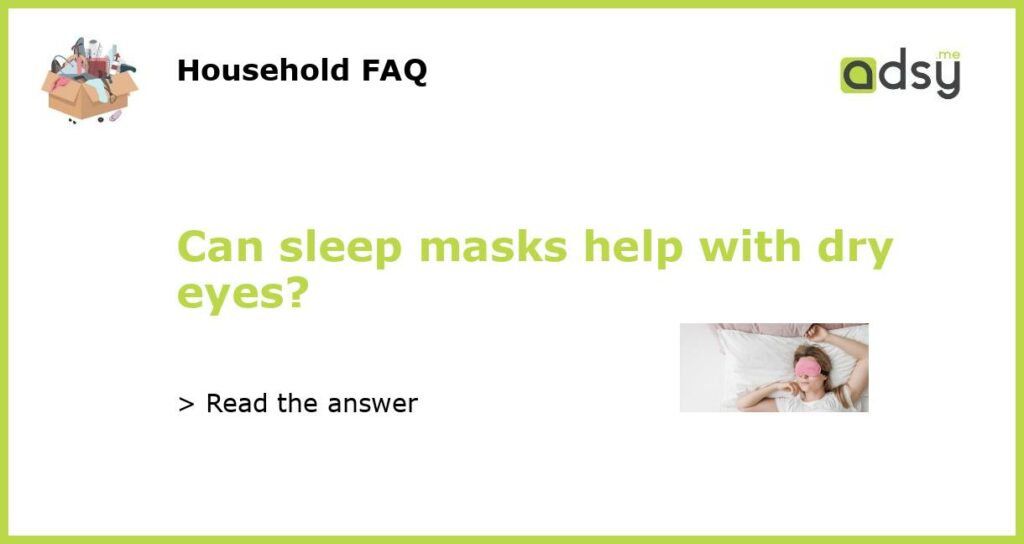How Sleep Masks Can Help Alleviate Dry Eyes
If you suffer from dry eyes, you know how uncomfortable and irritating it can be. Dry eye syndrome occurs when the eyes do not produce enough tears or when the tears evaporate too quickly. This can lead to a variety of symptoms such as redness, burning, itchiness, and blurred vision. While there are several remedies available, one option you may not have considered is using a sleep mask.
The Benefits of Using a Sleep Mask for Dry Eyes
Using a sleep mask can provide a number of benefits for those with dry eyes. One of the main benefits is that it can help retain moisture in the eyes. The sleep mask acts as a barrier between your eyes and the air, preventing excessive evaporation of tears during the night. This can help soothe dryness and relieve symptoms.
Additionally, sleep masks can provide a dark and quiet sleeping environment, which can be beneficial for dry eye sufferers. Excessive exposure to light and noise can cause eye strain and exacerbate dry eye symptoms. By blocking out light and reducing noise, sleep masks can help promote better sleep quality, which in turn can improve dry eye symptoms.
Choosing the Right Sleep Mask for Dry Eyes
When selecting a sleep mask for dry eyes, there are a few factors to consider. First and foremost, look for a mask that has a contoured design. This will ensure a comfortable fit and prevent pressure on the eyes. Avoid masks that are too tight or restrictive, as they can cause further irritation and discomfort.
Another important factor to consider is the material of the sleep mask. Look for a mask that is made from breathable and hypoallergenic materials such as silk or satin. These materials help minimize friction and irritation, making them ideal for those with dry eyes.
Combining Sleep Mask Usage with Other Dry Eye Treatments
While sleep masks can be helpful in relieving dry eye symptoms, they should not be used as the sole treatment for the condition. It is important to consult with a healthcare professional for a proper diagnosis and to discuss the best treatment options for your specific case.
In addition to using a sleep mask, there are other steps you can take to manage dry eyes. These include using artificial tears or lubricating eye drops, avoiding dry environments, taking regular breaks from digital screens, and practicing good eyelid hygiene. A comprehensive approach that combines these treatments can provide the most effective relief for dry eye symptoms.
Sleep masks can indeed help with dry eyes by providing a protective barrier that prevents excessive tear evaporation and creating a conducive sleeping environment. However, it is important to note that sleep masks should be used in conjunction with other dry eye treatments and under the guidance of a healthcare professional. By taking a multi-faceted approach to managing dry eyes, you can find relief from symptoms and improve your overall eye health.






